Science & Society
Sign up for our newsletter
We summarize the week's scientific breakthroughs every Thursday.
-
 Health & Medicine
Health & Medicine‘AIDS’ gives inside view of science, politics of epidemic
In ‘AIDS Between Science and Politics,’ pioneering HIV expert Peter Piot discusses the factors and events that shaped the epidemic.
By Beth Mole -
 Psychology
Psychology‘Survival of the Nicest’ demonstrates altruism all around
Selfishness is not the rule in human society, new book argues.
By Nathan Seppa -
 Ecosystems
EcosystemsLessons for the new year
SN Editor in Chief, Eva Emerson, reflects on looking to nature for insights on how to constructively look ahead - even if just a year -drawing from a handful of this issues natural science stories for her 2015 resolutions.
By Eva Emerson -
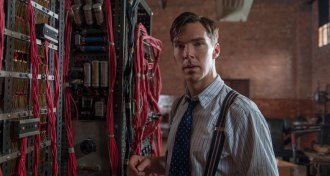 Computing
Computing‘The Imitation Game’ entertains at the expense of accuracy
Inaccuracies weaken “The Imitation Game,” an otherwise enjoyable film about Alan Turing breaking the Enigma code during World War II.
By Andrew Grant -
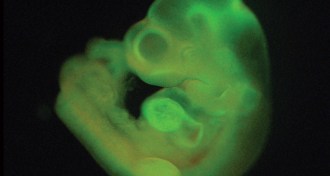 Life
LifeContamination blamed in STAP stem cell debacle
Stem cells supposedly made in acid baths were really embryonic stem cells, investigation finds.
-
 Neuroscience
NeuroscienceSmartphone users’ thumbs are reshaping their brains
Smartphones are forcing us to use our thumbs in new ways and reshaping the way our brains respond to touch.
-
 Chemistry
ChemistryRetraction looms for brute-force chemistry study
A 2011 study on tearing apart ring-shaped molecules is set to be retracted following a misconduct investigation.
By Beth Mole -
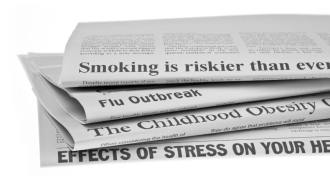 Science & Society
Science & SocietyThis study of hype in press releases will change journalism
A survey of press releases and their related scientific studies shows that hype may creep from press releases to news coverage. But this doesn’t give anyone at any stage of the news cycle a pass.
-
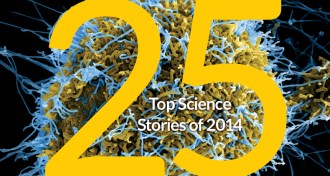 Science & Society
Science & SocietyEbola, Rosetta, e-cigarettes and more top stories of 2014
West Africa’s Ebola epidemic captured the attention of both the scientific world, and the world at large in 2014, placing it first among the Top 25 stories of the year.
-
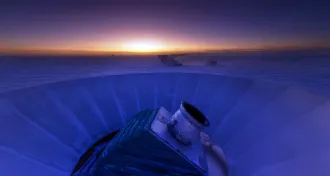 Science & Society
Science & SocietyScience’s good, bad, ugly year
In the race for Top Science Story of 2014, some of the contenders stumbled before reaching the finish line.
-
 Science & Society
Science & SocietyScience inspires awe — and arguments
As an eventful year in the sciences concludes, one that sparked both triumph and tragedy, SN's Editor in Chief contemplates 2014's most interesting stories.
By Eva Emerson -
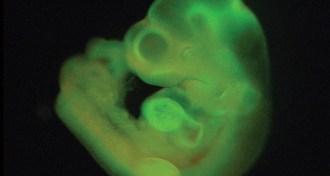 Genetics
GeneticsYear in review: Easy stem cells a no go
An incredibly easy method for making stem cells turned out to be impossible, again tainting the stem cell research field with controversy.